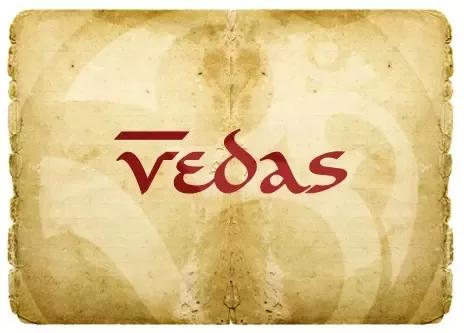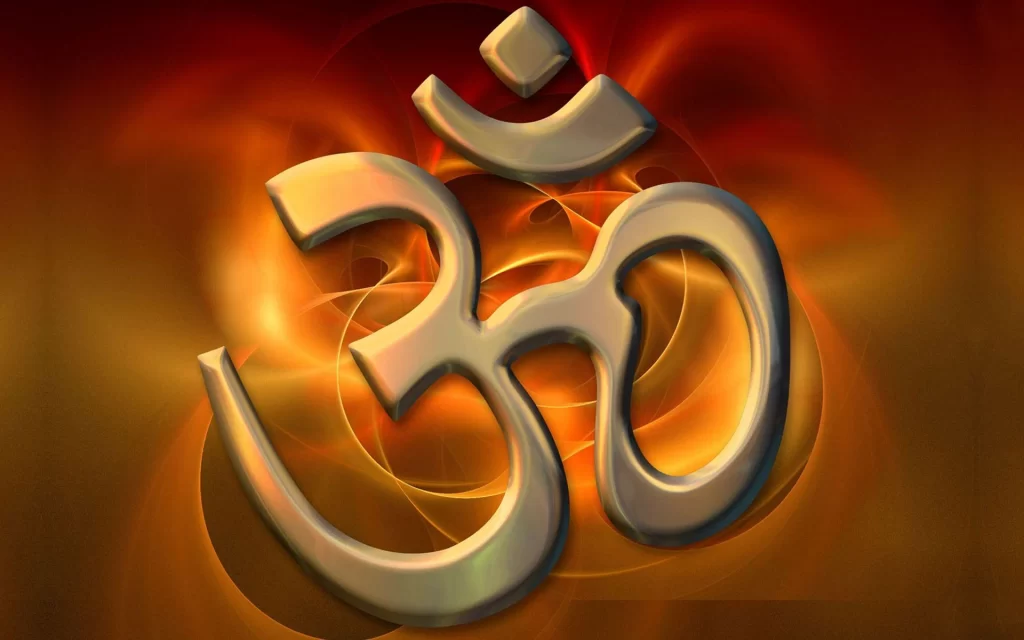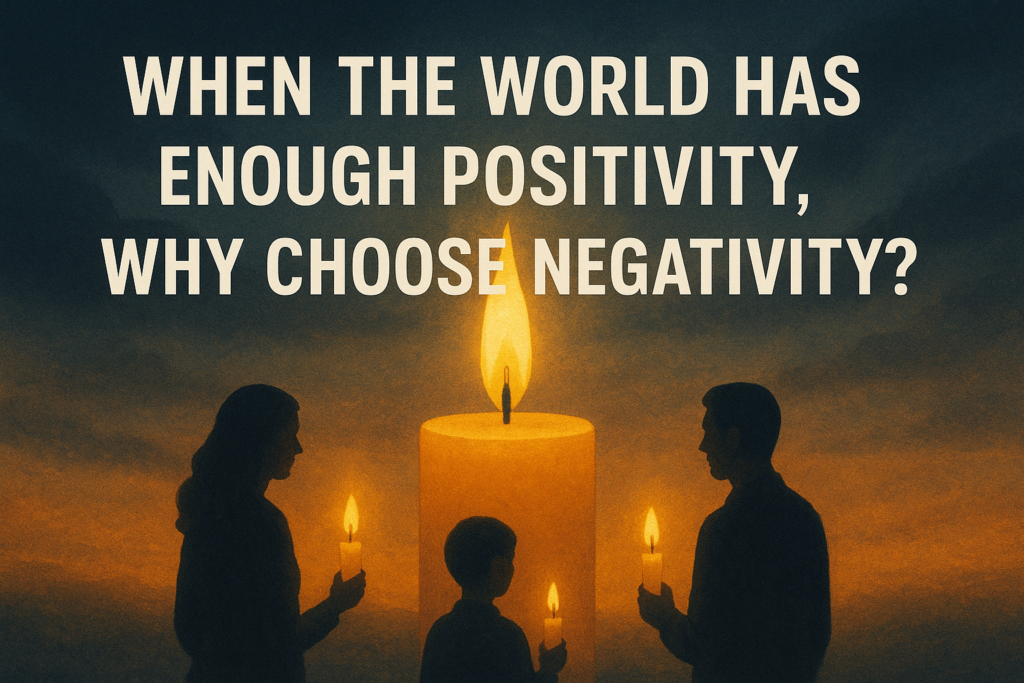Vedic Mantra Helps Reduce Your Anxiety And Depression

The Vedic Mantra, which are documented in the Brahmasutras, Upanishads, and other ancient texts, emphasise the meaning and relevance of the major Indian philosophical systems that resound in one’s life as the most practical, pious, holy, and honest mode of living. It is evident and highlighted throughout the literature and “Granths” such as Puranas, Ramayana, Mahabharatha, Bhagavatham, and Pancharatraaagama. It includes a part on the Srimad Bhagavad-Gita, which is regarded as the ultimate compilation of all Vedic literature.
The system of symbolism common to many Indian sourcebooks makes the real import far removed from the literal meaning, making it difficult to recognise and comprehend the meaning of the Vedas. Aurobindo, the great modern guru, produced a variety of essays as a result, most notably his Secret of Vedas and Symbolism of Vedas. The highly regarded Vedic scholar Kapali Shastri (1886–1953), who was linked with Aurobindo, was one of the great innovators in this discipline.
Ayurveda-Point of View
Depression is typically viewed from an Ayurvedic perspective as a Kapha imbalance, characterised by heaviness, melancholy, and overall stagnation. The official criteria that psychiatrists use to deal with depression include apathy, low energy, a bad mood, and restricted movement. All of these symptoms are Kapha issues, indicating that the Kapha element is most likely out of balance in clinical depression.
From a more thorough Ayurvedic perspective, the three doshas correlate to three somewhat different forms of depression. These distinct forms of depression might favour those with that primary dosha. When the impacted dosha or doshas are out of balance, they might even influence those with a different primary dosha.
Kapha Depression
Kapha depression is characterised by sluggishness, more sleep, lack of motivation, hopelessness, and ama (toxicity). Given the inherent slowness of Kapha, it is the most prevalent and long-lasting kind. Although the method of treatment varies, it generally entails boosting ojas, decreasing toxicity, and improving mobility (vitality). Several suggestions supported by science include:
30 minutes a day of yoga (especially Sun Salutations)
Daily outdoor workout for 30 minutes (start gentle and increase to higher intensity). Get outside at least once every week.
Increase the amount of fresh vegetables you eat. Cut back on sweets and processed foods (including alcohol, which is a depressant).
eat hot, spicy food. Cut back on smoothies and cold food. Spice up foods with smoky, warming herbs like cayenne and cinnamon.

Pitta depression
Pitta depression can be alleviated using general cooling and relaxing techniques. The following are some therapies supported by research:
Daily gentle, restorative yoga for 20–30 minutes. Avoid hot yoga and overly intense workouts.
Every day for 20 minutes, try to find a tree in the outdoors to meditate.
Spend at least 30 to 60 minutes each day strolling by a lake, the ocean, or a stream. Pitta finds cooling in the water.
Boost your body’s alkalinity by consuming green juices, salads, and fresh vegetables.
Increase your intake of cooling foods like smoothies and fresh fruit.
Steer clear of hot foods as they upset Pitta.
Avoid drinking while you’re recuperating (and be mindful afterward). Alcohol aggravates Pitta since it is acidic.
For Pitta, aloe vera juice can be beneficial. It is cooling and anti-inflammatory to drink one cup or more each day.
Vata Depression
A person with vata depression frequently has an excess of the stress hormone cortisol and is characterised by concern, restlessness, sleeplessness, and “ungroundedness.” They typically became overwhelmed after pushing themselves (or feeling pushed) past their limits. This resembles the traditional “nervous breakdown,” which is not a recognised medical condition. Vata depression is typically seen in psychiatry as an anxiety-depressive condition coupled. The inability to turn off the mind is a significant ruminative aspect of this mood.
Grounding, warming, and soothing are essential practises for overcoming Vata depression.
What Vedas Implies
The Bhagavad-Gita is often regarded as the most important work of Vedic literature. It is a life companion for anybody looking for dynamic, spiritual guidance, not just a master key to all Vedic concepts. It is a companion, thinker, and teacher for this life as well forever after.
Have you ever entered a Hindu temple, a Buddhist Pagoda, a temple, or a location where people frequently chant and experienced an immediate, unexplainable peace? No matter what issues were on your mind, as soon as you entered, you were able to instantly unlink your thoughts from the concerns that felt out of control.
Different people experience anxiety and depression in different ways. It can take the shape of persistently illogical thoughts of something you loathe, or it can take the form of obsessively overanalyzing and overthinking even the tiniest daily interactions and discussions, and even even events from the past. By adding uncertainty, generating unreasonable fears, and otherwise seriously impeding one’s capacity to lead a normal life, anxiety and depression

Vedic Mantra in Combating Anxiety
Many spiritual teachers and healers contend that prana, or life force, is the source of anxiety. When prana is low, one experiences sadness, depression, and other unpleasant emotions. Although it may be difficult to detect from the outside, or even from a brief mental health evaluation, one begins to feel stuck in life, stuck in the body, and stuck in their current circumstances when prana lowers even further. When prana is low for months or years, life starts to appear onerous and meaningless.
Exercise, a diet high in prana, as well as breathing exercises and meditation, are interventions that can raise prana levels quickly. Additionally, receiving the spiritual guidance provided by enlightened masters might broaden one’s perspective. It also aids in the capacity to comprehend and accept the temporary nature of what appears to be a protracted, terrible stage of life.
Knowing the distinction between pain and suffering enables us to accept pain without actually suffering from it. Consider instances where you were so engrossed in a movie or a song that you were able to block out bodily discomfort. The same phenomenon applies to mental anguish; all we have to do is learn to separate ourselves from the suffering. Anxiety can be brought on by holding onto ideas and words. Anxiety can be greatly reduced by allowing for flaws and letting go of little details. Though easier said than done,
Every affirmation seems to fail at times. Here, the use of healing mantras can help you raise your prana while separating your mind from the discomfort and tension.
What does the study indicate about the advantages of chanting for mental health?
The main goals of mantras for anxiety are to promote feelings of calmness, spiritual support, and enlightenment. A mantra is anything that a person chants or repeats aloud while meditating.
Mantra meditation practitioners hold the belief that these words have supernatural or spiritual abilities to reduce suffering and advance spiritual enlightenment. The Buddhist and Hindu traditions are where the idea of a mantra first appeared. The majority of conventional mantras are written in Sanskrit and support chanting with elongated vowel sounds.
In more recent times, the term “mantra” has been used to describe any phrase or expression that a person repeats to themselves, including conventional Sanskrit mantras, prayers and expressions from other religious traditions, and motivational sayings.
Numerous research indicates that calming mantras may be effective in reducing anxiety and other mental health issues including depression. Numerous studies let participants select a unique mantra that is compatible with their values. English words and phrases offer non-Buddhists and non-Hindus a way to use mantra-based meditation without violating cultural norms.

In a 2016 study, Macquarie University professors discovered that chanting “Om” for 10 minutes boosted attention span, improved mood, and strengthened social connectedness.
Another 2018 American Journal of Psychiatry study found that mantra repetition could help veterans with post-traumatic stress disorder manage their symptoms of anxiety and despair.
Vedic Mantra in Combating Depression
One tends to start resonating with what they believe they should be in the real world when living a daily life with the same routine. They feel as though they lack a distinct personality or identity while leading a life that has been predetermined for them by individuals in their immediate vicinity.
An identity crisis is beginning when we experience the sensation of having changed into someone we are not; this happens when we are unintentionally exposed to circumstances that make it difficult for us to identify with the person we were created to be. Eventually, it might be really disheartening to not be able to recognise yourself. The source of depression may also stem from other factors. It is essential to everything else that you comprehend and accept this. Then, and only then, can one begin to address these problems?
Hinduism provides several concepts and ideas to comprehend one’s mind and how it behaves in specific situations. If embraced and applied to one’s life in its most authentic and pure form, Hinduism’s essential teachings can be life-changing. A perception of warped reality is frequently linked to depression and identity crises. On the nature of reality and the rules that govern the inner self, Hinduism presents a clear perspective.
What does Hinduism have to offer?
Hinduism holds that there exist a set of unbreakable, eternal laws that aid in self-government. It is essential to everything else that you comprehend and accept this. Then, and only then, can one begin to address these problems? Everything that exists, including the visible and invisible aspects of reality, is governed by these endless laws. We must understand ourselves in order to comprehend this Hinduism idea.
We were formless before we were born, just as all of reality was before it emerged from an utter state of nothingness. Just as we can point to any drop and say it is the ocean, every drop of the ocean is a vital component of the ocean. Similarly, if the Brahman contains all that exists; then even we are the Brahman, in a very rational way. Like reality itself, we are boundless and eternal.
Take a look at what you have accomplished since you were a child. There isn’t a single thing that you genuinely wanted but didn’t bring into being. But occasionally, while participating in this game of life, we become so preoccupied with our assigned roles that we lose sight of our genuine selves. This Dharma concept serves to remind us of the genuine nature of reality when we lose sight of who we are.

We have a tendency to exaggerate our own issues by persistently dwelling in the mind while we are going through a severe crisis of self-awareness and loss of joy in life. The blessings of the Vedas, which contain the codes to open countless doors, for knowledge and wisdom are bestowed to us by Hinduism. These verses also emphasise the need for us to be able to distinguish between fleeting happiness and lasting happiness, as well as how real happiness feels. If we properly examine these verses, it becomes clear that the mind is merely a tool that we have the choice to employ in order to improve our life.
We rarely really examine ourselves on the inside in today’s world, when there are more dead people than alive. Because our heads are glued to screens all the time, the outside world is frequently ignored as well. As a result, rather than the mind being our tool, we have turned into the mind’s tool. We can take charge and begin leading lives that are full of purpose, contentment, and genuine and eternal happiness once we master the art of understanding and observing how the mind regulates and affects our existence.
The impact of the Bhagawad Gita on our Lives
The Bhagavad Gita is a great Hindu text that instructs us on how to live a life characterised by love, compassion, fulfilment, and pleasure. It speaks to the core of our beings and rekindles the flame of our shared humanity. The Bhagavad Gita states that when faced with a dilemma, we frequently opt for the answer that best appeases our mind, giving less consideration to the problem’s proper resolution. Therefore, if we begin applying this knowledge and incorporating it into our decision-making processes, we will be able to truly comprehend how frequently we pick skewed and unworkable answers to issues that could have been solved in a very easy and direct manner.

Additionally, the Bhagavad Gita instils in us the lesson of letting go of expectations when carrying out a specific task. Any action we take can only be done in the best way if we are content and enthusiastic enough to complete it without having any expectations. By letting go of expectations, we train our minds to concentrate on the task at hand rather than the advantages of completing that specific task.
Most importantly, one of Hinduism’s fundamental ideas that can help someone overcome depression is quite easy to comprehend. All it says is that it’s crucial for all of us to realise how precious our existence is, therefore we should all try to live in the now rather than in our minds. We are lacking in gratitude, which causes us to miss the moment at hand and drift off into the mind’s endless cycle.
The mind is nothing more than a repository for the information we gathered earlier. While we continue to listen to it, it keeps repeating that information while we watch as lovely moments pass us by. If we continue to fantasise about something that does not now exist, then all we are actually is the slaves of a mind that chooses to live in a fantasy.
The Gita exhorts us to free ourselves because we are not property. You are unbounded. You can and will do it, so go splash the oceans, trample the mountains, and reach for the stars. The world is yours to conquer, so go forth and do so.
Transcending the Mind with Mantras
Mantras are inspiring, age-old sounds that aid in raising consciousness. The Sanskrit word “mana” means “mind,” and a mantra is something that elevates you above the mind. Mantras have great power and are considered sacred. They should be reverently recited or listened to. The intellect is fed by the ether element, which is itself enhanced by mantras. When chanted correctly, mantras have a very profound impact on both health and the environment because the good vibrations they produce last for a very long time. You will always feel intense serenity and silence when you enter a space where regular chanting is taking place.
Our minds should completely absorb the mantra when we say it, making them the mantra. The repercussions of the mantra that we repeat in our minds go beyond what reason and intellect can offer. Even listening to mantra chanting has the power to calm the mind and promote mental and physical equilibrium.
The mantras listed here are some of the very best for overcoming depression and anxiety.
Om Namah Shivaya- The Root Mantra

Om’s name is Anahat Naad (un-struck sound). Om is referred to as the initial sound of the eternal creation. Om’s frequency is that of being; it is unmanifest that permeates everything of manifest creation. The five letters of Na-Mah-Shi-Va-Ya represent for the five letters stand for touch, hearing, taste, sight, and smell as well as the five senses that are connected to each of the five elements: earth, ether, water, fire, and air.
This mantra is incredibly potent and effective at bringing harmony to the mind, overcoming all of the negativity encountered in life, and balancing various planetary flaws. One can easily reach a deep level of meditation and experience incredible relaxation from all of the troubles of the outside world by carefully and reverently chanting this mantra.
Namo Bhagavat Te Va-Su-De-Vaya
This 12-syllable mantra is revered as the song of liberation because of its power to free one from materialistic worries. In addition to providing relief from issues like anxiety and sadness, it also increases longevity and general health.
peace of the Mind mantras
Shanti means peace in Sanskrit. You may have heard the chant ‘Om shantih shantih shantih’ after meditation or other spiritual practises and have felt serenity pervading your being. People who struggle with anxiety frequently fear unreal and fantastical circumstances. Three repetitions of “Om shantih shantih shantih” promote harmony and tranquilly on all levels, including the causal, metaphysical, and physical. The cosmos as a whole is at peace thanks to the Shanti chants. They are a successful treatment for insomnia due to their lovely capacity to calm and unwind the mind and surroundings.
Shanti Mantra is the universal mantra
This potent Shanti mantra not only brings peace to our hearts and minds but also to the entire world and its populace. Invocation: Om dyauh shantir-antariksham shantih
May the sky as well as the ethereal space be filled with peace and harmony.
Prithvi shantir-aushadhayah shantih
May there be harmony and serenity on this planet as well as in the water, creepers, and herbs.
Shantir-vishwe-devaha-shantih, Vanaspatayah
May harmony reign throughout all life forms and the cosmos as a whole.
Shantih-shantir-eva shantih, Sarvam Sa-ma-shantir-edhi
May there be harmony and peace on earth.
Mantra of Maha Mrityunjaya
Many seekers have felt the profound benefits of this liberating mantra, which is one of the most potent ones. In Sanskrit, “jay” symbolises triumph and “mrityu” means death. Our mantra enlightens the chanter’s awareness to the eternal nature of life and elevates it above the limitations of this physical existence and life on Earth. This mantra should only be sung in a clean environment, with complete reverence, and using the exact pronunciations because it is so powerful and sacred.

If you don’t think you can chant this mantra properly, paying close attention as others chant it will still have the same positive effects. This phrase not only corrects planetary flaws but also delivers triumph over all forms of fear, anxiety, tension, health problems, and unfavourable circumstances and invigorates one. The repetition of this mantra has a profound calming effect on the psyche.
Disclaimer: The author’s views are his or her own. The facts and opinions in the article have been taken from various articles and commentaries available in the online media and Eastside Writers does not take any responsibility or obligation for them.
Note: Contact our Writers at www.eastsidewriters.com for writing Blogs/Articles on any niche. We have experts in various domains from Technology to Finance and from Spirituality to Lifestyle and Entertainment.
Originally posted 2022-12-08 08:28:12.







Pingback: Ayurveda And TMC Has Unparalleled Scientific Ways To Care for Your Liver - Eastside Writers
Pingback: Asafoetida -An Incredible Nature's Gift To Cure Whooping Cough And Asthma - Eastside Writers
Pingback: How To Free Your Mind From Unnecessary And Unproductive Overthinking - Eastside Writers
Pingback: Why Om Is The Universal Mantra- Usefulness Of Its Sound And Chanting
Pingback: If You Want To Live Your Life Spend Time With Yourself - Eastside Writers
Pingback: Avoid Letting Chronic Stress Control Your Life- It Can Be Dangerous
Pingback: Are You Sure That All Your Dreams Will Come True | Eastside Writer
Pingback: Surya Namaskar - The Ancient Sun Salutation of Great Value To Mankind
Pingback: Secrets And Surprising Benefits Of Consuming Cloves On Your Health - Eastside Writers
Pingback: 12 Tips To Trigger The Flow Of Happiness Hormones In Your Body - Eastside Writers
Pingback: Debunking 7 Common Penis Myths: Separating Fact from Fiction - Eastside Writers
Pingback: Unlocking the Mysteries of Dementia: Understanding, Managing and Coping with Cognitive Decline - Eastside Writers
Pingback: 7 Ways To Get Relief From Your Menopause Symptoms
Pingback: The Negative Impact of Alcohol Consumption: How Excessive Drinking Harms Our Body - Eastside Writers
Pingback: The Silent Thief of Oxygen: Exploring the Causes, Symptoms, and Treatments of Anemia - Eastside Writers
Pingback: Shatavari - A Powerful unique Herb for Women's Reproductive Health and Wellness - Eastside Writers
Pingback: Exploring the Complex Realities of Frotteuristic disorder: The Shadows of Non-Consensual Burning Desires - Eastside Writers
Pingback: Is Your Boss a Psychopath? Recognizing Signs of Workplace Psychopathy - Eastside Writers
Pingback: The Ugly Connection: Cell Phones, Depression, and Loneliness Invading The Young Generation - Eastside Writers